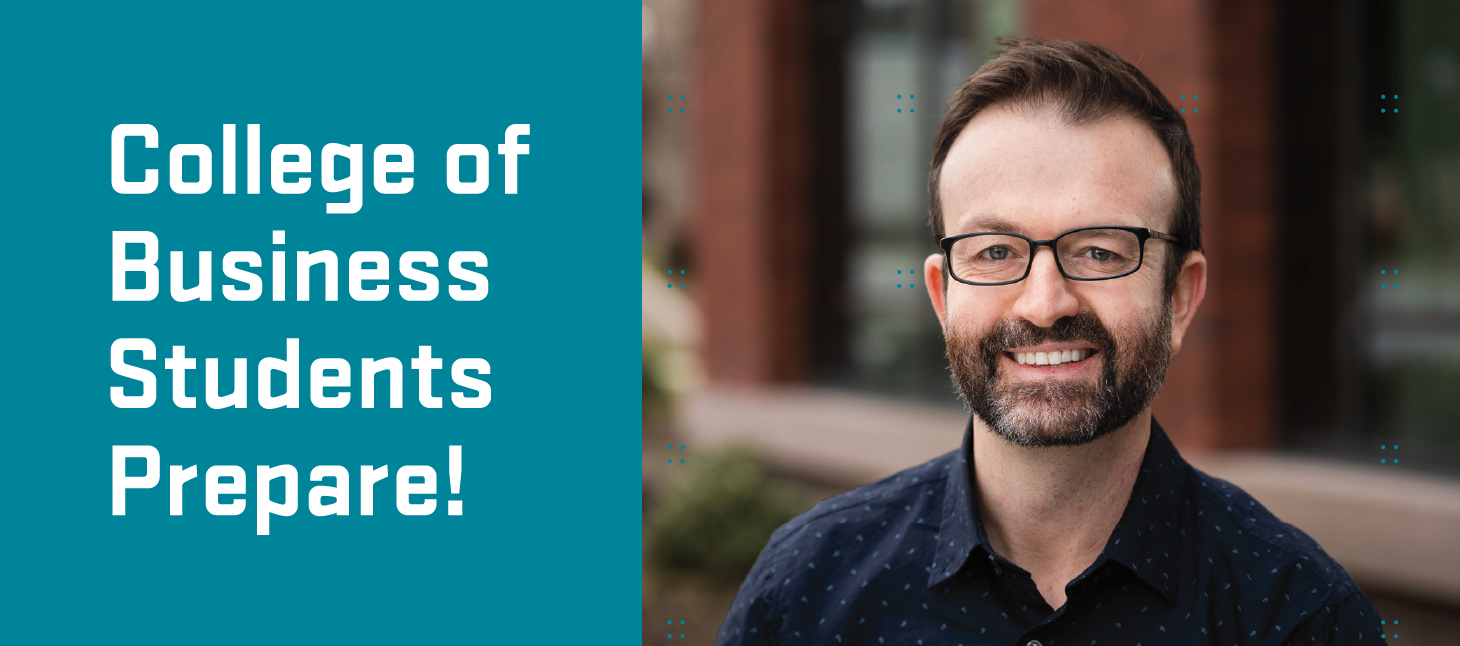News, articles, and interesting stuff from the College of Business
Community tax service boosted by million-plus grant
If you think tax season is busy; wait until you hear what the College of Business accounting program has targeted next: It’s an ambitious $1.61 million project – bringing free tax accounting services to communities across Oregon.

If you think tax season is busy; wait until you hear what College of Business accounting program has targeted next: It’s an ambitious $1.61 million project – bringing free tax accounting services to communities across Oregon. Yet it is one that combines unique strengths of OSU and the College of Business: reach and scale.
The project is VITA, the IRS’s Volunteer Income Tax Assistance program, which offers free tax preparation to low-income households and individuals in communities nationwide. With the oversight of Logan Steele, the Mary Ellen Phillips Professor in Financial Accounting and one of the college’s associate school heads, a successful VITA partner program is now poised for more exponential growth.
VITA provides tax services to individuals or households with income less than $60,000, and they offer language services for English, Spanish, Chinese, Vietnamese and Korean.
Steele started a local VITA partner project four years ago, a project only made feasible by the generous donors who support the accounting program. His motive was to create this experiential learning opportunity for students, based upon his own undergraduate experience, and to benefit the community. Soon after launching, the VITA program was awarded a $10,000 federal grant from the IRS in recognition of the program’s quality.
“Many universities have a VITA program, and there’s a lot of interest from community members and volunteers,” Steele said. “I’ve attended VITA work sites through the years, and I saw the value. I also served as a VITA volunteer as an undergrad, and I got a taste for how beneficial this experience can be.”
As Steele explains, during the pilot year, the program was running on a lean budget. A VITA program requires a tax expert to oversee operations, and donors to the accounting program covered the gap to hire its first VITA director.
Students, primarily working as volunteers, became VITA-certified tax consultants providing their services for free to the community.
As word got out about the College of Business VITA program, these students collected a decent portfolio of clients, both fellow students and members of the community. “We took in a lot of clients, and we of course had to follow through and finish the taxes for them,” Steele said. “So that’s a pretty big deal. We were operating like professionals in tax season with that kind of pressure and stress.”

That last tax season brought a lot of paperwork, perspiration and pizzas into Austin Hall over winter quarter, with long days and late nights in order to meet the very ambitious workload to service more than 100 income tax returns at the end of season “crunch time.”
The VITA team completed more than 250 for the full season with the help of a $10,000 IRS grant to expand operations. The impact of the grant was eye-opening and illustrated to Steele the potential the VITA program could have with more funding.
But now, with a new $1.46 million grant from the State of Oregon Department of Human Services, OSU VITA eyes counties and communities across the state with the goal of expanding their client number to 4,000 in total across the next two years.
“There are other VITA programs out there in Oregon; for example, a large operation called CASH Oregon that is Portland-based Metro,” Steele said. “There’s a smattering of small programs throughout the state. But the state agency is looking to OSU to bring services to the rest of the state.”
A vital part of becoming Oregon’s partner in this endeavor to expand VITA, Steele says, is the OSU Extension with its existing physical reach and social connections in every Oregon county. The Extension network can help get the word out as well as provide community space for meeting with potential clients. And the reputation of OSU is expected to bring a sense of familiarity and trust in the services, Steele notes.
The scaling comes from a mix of College of Business student volunteers, paid employees and student workers, and community member volunteers.
“We started out as your typical college VITA program with a pretty small volume; we’re talking 30 or 40 returns that first year,” Steele said. He thought they could grow the program a bit more and targeted 100 filings. After the first year, VITA services doubled clients and then doubled again.
The value proposition, as Steele sees it, in reaching 4,000 returns filed for the community is huge. Many clients, without free services, are paying initial processing fees and then paying for the filing of additional forms to gain an earned income credit for their household as well as their child tax credits for both federal and state taxes. Depending on a family’s situation, they may opt for an immediate payment rather than waiting for the IRS process to complete, and can lose additional value there.
“Filing taxes helps your credit score; it helps with eligibility for banking and loans,” Steele said. “And getting those refunds is really important. Our average client gets back a little more than $1,000 in refunds that they wouldn’t have gotten if they had not filed taxes. The biggest refunds help those with the least income, and it helps their kids.”